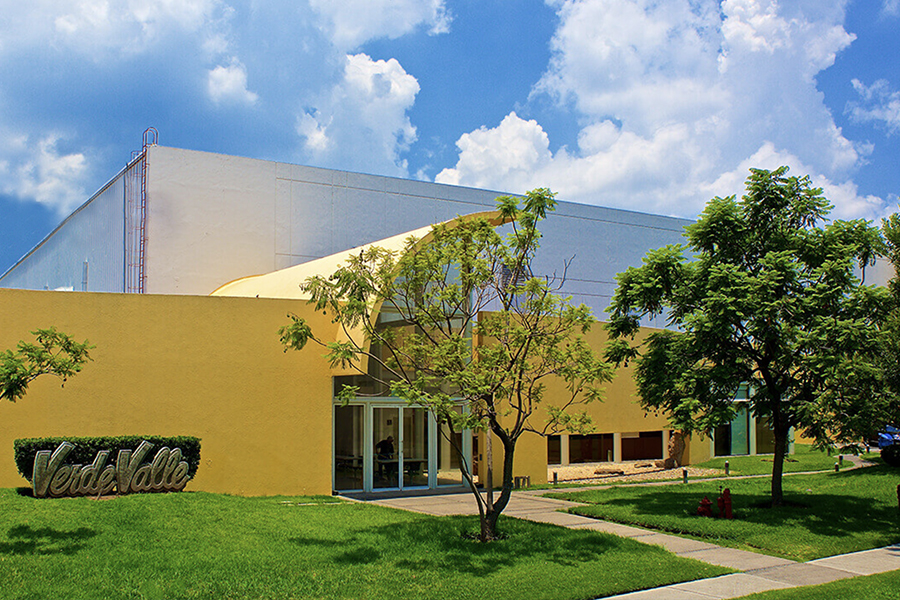September 29, 2022
The purchasing director at Mexico’s leading bean distributor, Verde Valle, chats to Luke Wilkinson about the staying power of yellow beans and how GPC events help maintain working relationships.


Hector will be a panelist on the North America Pinto Bean panel at the GPC’s Americas Pulses Congress in Cancun on December 3-5, 2022. Not registered yet? Sign up for the event here.
Of course, Verde Valle was founded 50 years ago and is a Mexican company characterized by its goal of finding the best possible quality and getting it out onto the market. Our history began with stocking small supermarkets, but over time we have expanded our distribution in the US and Mexico alike.
We are focused on selection and packaging, and right now we are the number one brand of beans in Mexico in both dried and added value beans, the processed kind that can be bought in pouches.
My job here is as director of purchasing, and I've been here for eight years.
There are two very important pillars within the company: one is rice, and the other is beans. We also sell other pulses, like lentils, chickpeas, broad beans and alubias. But rice and beans are the most important.
The beans we package are roughly 95% Mexican beans from Mexican sources. We buy and package many different varieties of beans, like Pintos, black beans, Peruvian beans, Flores de Mayo, and black-eyed peas.
Operations are focused solely on sales in Mexico and the United States where beans are concerned.
How much is to be sold in the United States depends a great deal on the price of American beans. When the difference in price isn't very big, then it can mean that the internal consumption of the United States tends towards American-grown beans.
If there is a big difference in the price, then we see a rise in the amount of beans we send to the United States. There are some constants, like the Peruvian, or yellow bean, that we grow here in Mexico. We send that to the United States very consistently, as well as some other varieties like the pinto and black bean.
Of course we don't deal in loose, wholesale beans, all of our beans are packaged in the Verde Valle brand then distributed to different supermarkets.
Beans are definitely still an important element of Mexican cuisine, it's something you find in every Mexican kitchen. That said, we have seen a reduction in per capita consumption of beans in Mexico from the 1980s until now.
In the 80s there was a consumption per capita of around 16 kg per person, and last year we were around 9 kg per person. We're also definitely seeing a trend towards consumers looking more towards processed products. From last year to July this year, we saw a rise of 8% in the purchase of processed beans.
On the other hand, looking at dry beans that you buy in packets, we've seen the opposite: a fall of 8% from January to June. So in answer to your question, absolutely they are an important part of Mexican cuisine, but consumers are clearly moving towards processed beans.
For various reasons, including the poor harvest last year that you mentioned, the export of beans has risen generally; more exports to Europe, to Africa, and also to the United States.
Often it's merely a question of cost that allows Mexican beans to have an outlet for export. They're able to position themselves in new and different markets depending on price changes.
Production costs are not the same as they were three years ago. It’s clear there are the rising cost of fertilizers and other inputs too - this comes alongside climate issues, as some varieties of beans will depend on rainfall, so this can also affect whether or not farmers have a good crop.
In terms of price we have seen a definite rise in the prices, with what's happening right now in Ukraine, freight costs, and general worldwide inflation all being big factors in that.
Of course it's still a little premature to be saying anything concrete about the next cycle because all we have is estimations.
We have noted that some farmers in Mexico that have changed crops to alternatives such as wheat, barley, and corn, and when we take into account the issues we’re seeing with fertilizers, and the rotation to different crops, it's possible we could see a decrease in the seeding of beans although I couldn't say for sure that that will be the case, or by how much.
Stop seeding it? No, I doubt that very much. Whether acreage changes for yellow beans depends on a lot of factors, but honestly, no, I don't think producers will stop.
Sinaloa is a big corn producer, and with everything that's gone on with corn prices that could mean producers decide to add more corn and fewer beans, but yellow beans have a niche market that is very very clear, and they sell well. It's a very exportable bean.
Well, for beans, one of our objectives is definitely to continue to grow our line of value added products and give our consumers products that are more practical for them.
Naturally, one of the fundamentals of the company is to continue offering the best quality possible as part of our brand. We've spoken about beans because they are an important product for us, but there is important growth in other pulses that can also bring practical foods to our consumers.
Our research and development team is working on all kinds of different products, and while I couldn't say for certain that that's the direction they're going in, it's clear that there is a trend in that direction, and often we have to go where the market takes us.
Yes, I’m planning to go to the event. In terms of the commercial benefits, there can be some sales or purchases to be made there, but the information from the panels can be really valuable too.
As someone involved in negotiations and purchasing, I think the personal part of being face-to-face at an event really helps; you can form relationships with new contacts and reinforce relationships with old ones.

Hector de Luna / Mexico / Verde Valle / Pintos / black beans / black-eyed peas / United States / yellow bean
Disclaimer: The opinions or views expressed in this publication are those of the authors or quoted persons. They do not purport to reflect the opinions or views of the Global Pulse Confederation or its members.